yourHEALTH














with a focus on:


















with a focus on:



This question is timely as cold and flu season will soon be here again.


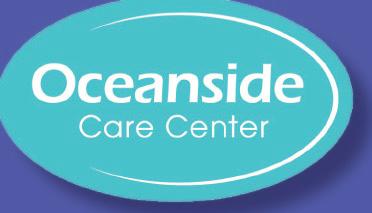

For many years, there’s been interest in the possibility that zinc, or other supplements, could help prevent or treat colds and flu. A recent analysis reviewed available research and suggested that over-the-counter zinc supplements could be one way to make cold and flu season a bit easier.

Published in November 2021 in BMJ Open, the study looks at zinc for preventing or treating colds and flu-like illness. Researchers reviewed more than 1,300 studies and narrowed the analysis down to 28 well-designed trials, which included more than 5,000 study subjects. Here’s what they found.


For preventing colds and flu-like illness
Zinc therapy was associated with fewer upper respiratory infections compared with placebo. The effect was modest: about one infection was prevented for every 20 people using zinc. The strength of the evidence was considered low.
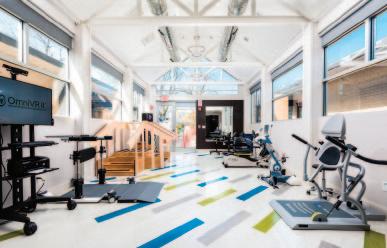
A few studies suggest preventive effects were largest for reducing severe symptoms, such as high fever.
Small studies of intentional exposure to a cold virus found that zinc did not prevent colds.
Those who took zinc had symptoms go away about two days sooner than those in the placebo group. Of 100 people with upper respiratory infections, an estimated 19 additional people would have completely recovered by day seven with zinc treatment. The strength of the evidence was considered low.
On day three of the infection, those taking zinc had milder symptoms. Further, there was an 87% lower risk of severe symptoms among those taking zinc. However, the daily average symptom severity was similar between those taking zinc and those taking placebo. The data quality and certainty of these findings were low to moderate. Before taking zinc, keep these other points in mind.
Side effects. Zinc-related side effects were mild. These included nausea and mouth or nose irritation.
Cost. Zinc supplements are generally inexpensive. A daily dose of zinc lozenges for a month may cost less than $2/month.
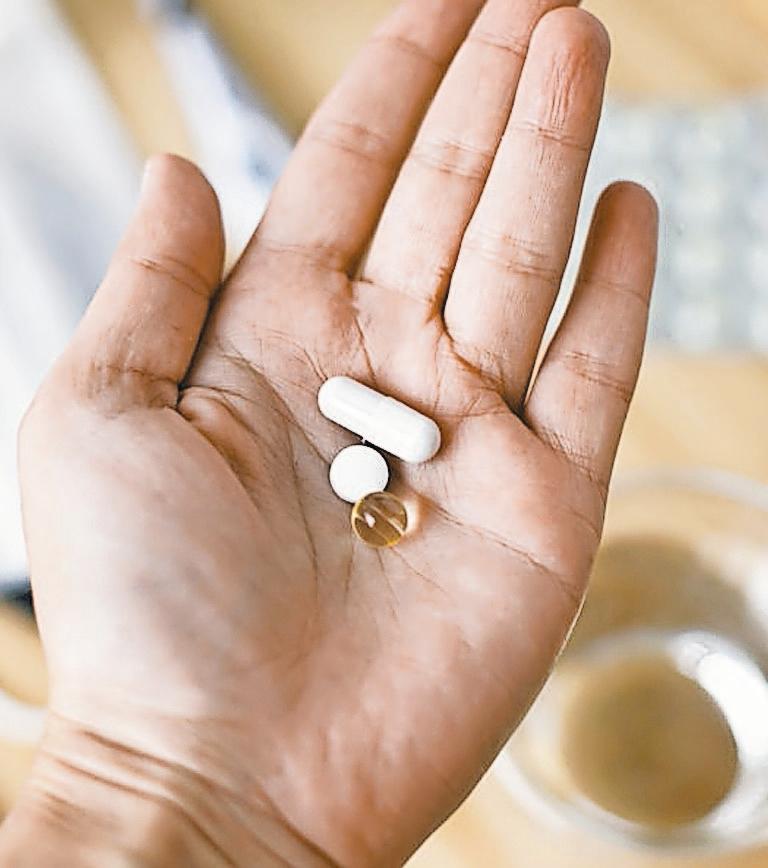

Different doses or types. Additional research is needed to determine the best dose and ideal way to take zinc.<bold> Covid-19. None of the studies in this analysis assessed the impact of zinc on the virus causing Covid-19

. Whether you decide to take zinc or not, keep in mind the following tried and true preventive measures and treatments:
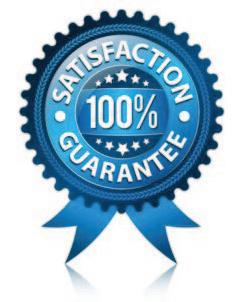
√ Get a flu shot
√ Wash your hands frequently
√ void contact, maintain physical distance and wear a mask around people who are sick





√ Get plenty of sleep
√ Choose a healthy diet

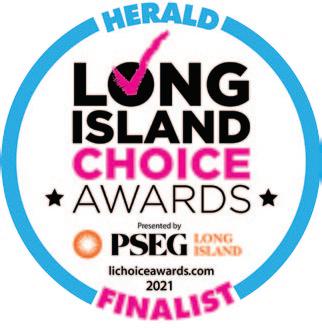
Tea may taste good and be especially soothing on a cool day, but there are also many medical benefits to this drink.
Tea is an ancient beverage that has been enjoyed for centuries thanks to its healing benefits. An estimated three billion cups of tea are consumed across the globe every day, with many people looking to tea when they are sick or to prevent illness.
This month is the time to celebrate life and turn over a new leaf. September is Healthy Aging Month, a month dedicated to helping individuals gain a more positive outlook about growing older.
The core message here applies to everyone at all ages: build a foundation early on with the principles of good health for well being throughout your life.
Do you ever wake up and think “Wow, I don’t feel as young as I used to?” It’s a sentiment shared by people of every age group. Fortunately, it doesn’t matter if you’re 20 or 60 feeling fit and aging well can be a reality with the right mindset and proper exercise and nutrition.
Young adults: Up to age 30
Starting a career, getting married, perhaps even buying a home these are just a few big life events people in this age category often experience. It also means less time to focus on fitness, and often an increase in unhealthy eating on the go.
Physical activity: Young adults should do what they enjoy most, fitting it in on a regular basis, suggests Tavis Piattoly, a sports dietitian and nutritionist.
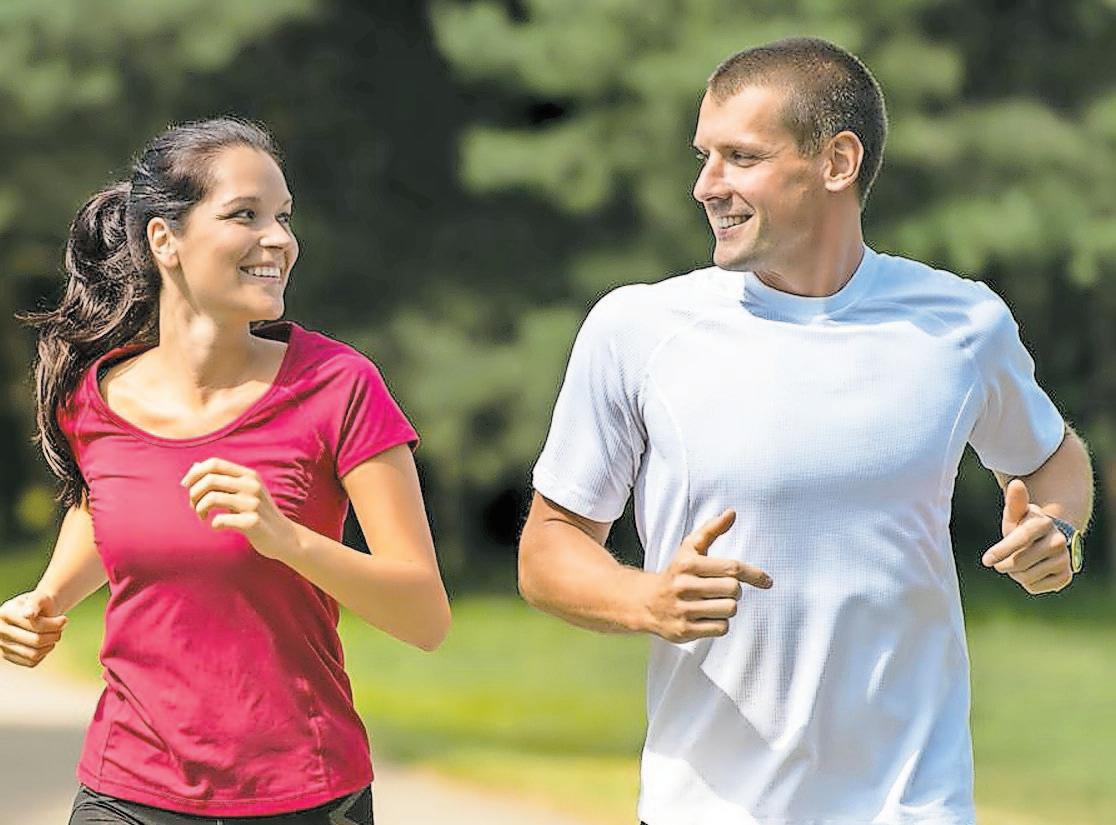
Nutrition: “The metabolic rate of this age group is declining, so they can’t live on fast food for breakfast, lunch and dinner like they did in college,” Piattoly says.“It’s time to clean up the diet and make smarter choices such as reducing sugar intake and avoiding fast food as much as possible. Prevention should be the focus.”
Supplements: A multivitamin and probiotic supplements can also be helpful, according to Piattoly.
Middle age: 30 to 50
Regular checkups with a physician are more important than ever now. The stress of having children and growing a career can take a toll. Eating out due to lack of time becomes common and can cause weight gain.
Physical activity: Regular strength training three to five days per week to prevent the progression of muscle loss that begins around age 35, according to Piattoly.
“For cardiovascular-related exercises, it is important to do what you enjoy as you are more likely to stay motivated and consistent,” he says. “Yoga is recommended for those individuals who are looking to balance stress.”
Nutrition: “It’s important to eat smaller more frequent meals throughout the day, such as every three to four hours, and to make sure a source of lean protein is includ-
ed at every meal and snack,” Piattoly says.“Protein is more thermogenic than fat and carbohydrates, so your body burns more calories when consuming protein.”
Supplements: In addition what is recommended for the young adult group, Piattoly suggests vitamin D and turmeric extract, a great natural anti-inflammatory agent, for 30 to 50-year-olds.
Boomers: 50 plus
People of this age are concerned with their health and risk for disease due to family history or lifestyle factors from their youth. Additionally, progressive loss of muscle mass and weaker bones increases risk for injury.
Physical activity: Regular strength training three to five days per week prevents the progression of muscle loss and maintains good bone strength to prevent falls, Piattoly recommends. “For cardiovascular-related exercises, it is important to do what you enjoy as you are more likely to stay motivated and consistent,” he says. “You can still participate in cardiovascular-related sports like tennis and basketball. For lower-impact sports that are easier on the joints, I like swimming and cycling.”
Nutrition: “Since the immune system is not as strong as it once was for this age group, a diet rich in fruits and vegetables is key, such as five to 10 servings per day,” Piattoly says.“Protein is also a critical nutrient for the preservation of muscle mass. I usually recommend making a smoothie or shake at least once a day, which can include protein powder, fruit and some veggies.”
Supplements: A vitamin D supplement for bone health and, potentially, calcium for osteoporosis, and creatine to reduce the risk of age-related muscle decline are worthwhile considerations.
For all ages
Adopt a healthy routine. The longest living folks tend to have a fondness for daily and weekly routines. Routines that feature healthy diets, exercise and connecting with others are key. However, one study found 75 percent make it a point to laugh or giggle everyday and 60 percent meditate or practice some spiritual activity each day.
As popular as tea has become, certain misconceptions about tea have spread over the years. Read on to learn more about what’s in your cup.
Myth: Different tea varieties come from different types of tea plants.
Fact: Commercial tea comes only from the leaves of the camelia sinensis plant. Different methods of processing determine which variety of tea is produced. Black and oolong tea develops from oxidizing and fermenting tea leaves, while green tea is produced by steaming wilted leaves.
Myth: Adding milk to tea negates the health benefits.
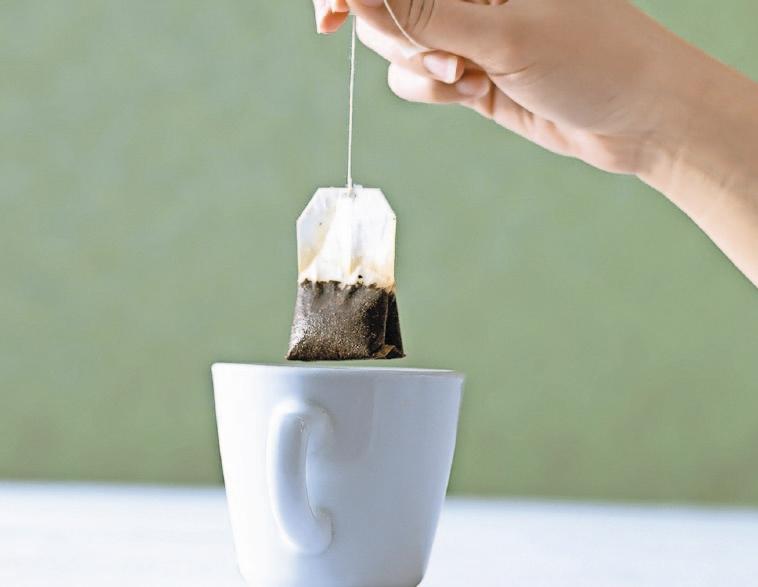
Fact: According to a study published in the Journal of Agricultural and Food Chemistry, the same amount of catechins, which are antioxidants associated with a reduced risk of some diseases, can be absorbed tea that contains milk as tea that does not.
Myth: Anything with the name “tea” is true tea.
Fact: Only tea from tea plants constitutes real tea. Herbal varieties of tea are actually tisanes made from flowers and bark of other plants.
Myth: Fruits and vegetables contain more disease-fighting antioxidants than tea.
Fact: Research indicates that tea has about 10 times the amount of antioxidants of vegetables and fruit. Individuals who consume reduced-calorie diets often find tea that is a good, no-calorie source of antioxidants.
Myth: Antioxidants can turn back aging.
Fact: Antioxidants may contribute to personal longevity, but they cannot reverse signs of aging. Antioxidants have been known to neutralize free radicals in the body that can contribute to many different diseases, including various forms of cancer.
Myth: Tea never goes bad.
Fact: It may take some time for properly stored tea to spoil, but the level of antioxidants in tea does begin to diminish after a few months. Research by the Journal of Agricultural and Food Chemistry indicates catechins in green tea decrease by 32 percent in just six months. Tea is most beneficial to human health when it is consumed within six months of its production.
Myth: Tea has much less caffeine than coffee.
Fact: The amount of caffeine in tea can vary. The average amount of caffeine in tea ranges from 14 to 61 mg per eight-ounce cup. Coffee, on the other hand, can contain between 27 and 200 mg per serving.
Myth: Hot tea is better for you than cold tea.
Fact: As long as the tea is steeped in water long enough, both hot and cold tea provide the same bang for your buck.

Wednesday, Sept. 27.
Voices for Truth and Humanity promotes U.S. public-school education about the Holocaust, slavery, and genocide. The organization aims to fight hatred against Jews as well as all bigotry. These values resonate with the Parker community. Since its inception in 1914, Parker has stood for inclusion, aiding New York’s most vulnerable population, including immigrants and older adults. That tradition remains steadfast at Parker, a culturally rich institution that welcomes people of all backgrounds, whether they are patients, residents or team members.
gender, race, ethnicity, geography, or sexual orientation.
Under Mr. Rosenblut’s direction, Parker embraces diversity and meritocracy, where team members boost their skill sets through education and mentorship. Parker focuses on service, where staff takes pride in exceeding expectations of the Institute’s patients, residents and their families, treating everyone with respect.
On Wednesday, Mr. Rosenblut said he was honored to accept this recognition from Voices for Truth and Humanity.
The Parker Jewish Institute is pleased to announce that its President and CEO Michael N. Rosenblut was recognized with the Humanitarian Award by Voices for Truth and Humanity. The honor was presented to Mr. Rosenblut at the 4th Annual Remembrance Awards dinner, at Crest Hollow Country Club in Woodbury on
Parker is now home to an Indian Cultural Unit, the first of its kind, serving East and West Indian older adults in the region. Through a grant from the Jewish Federation of North America, Parker recently deployed its Hope and Healing program. This innovative program is designed to address the unique challenges faced by family caregivers of older adults with dementia and a history of trauma, regardless of their age,
“I am very humbled to receive the 2023 Humanitarian Award,” Mr. Rosenblut said. “As leaders, we all have a role to play in fighting hate in all forms. Educating our children and leading by example, is the best insurance against a repeat of the atrocities of the past. Thank you Voices for Truth and Humanity for this truly distinguished honor.”
About The Parker Jewish Institute for Health Care and Rehabilitation
The Parker Jewish Institute for Health Care and Rehabilitation is headquartered

in New Hyde Park, New York. The facility is a leading provider of Short Term Rehabilitation and Long Term Care. At the forefront of innovation in patientcentered health care and technology, the Institute is a leader in teaching and geriatric research. Parker Jewish Institute features its own medical team, and is nationally renowned as a skilled nursing facility, as well as a provider of community-based health care, encompassing Home Health Care, Medical House Calls, Palliative Care and Hospice. Parker Jewish Institute is also home to Queens-Long Island Renal Institute (QLIRI), led by an interdisciplinary team of experienced Nephrologists and Dialysis Registered Nurses, a Renal Social Worker, and a Registered Renal Dietitian.
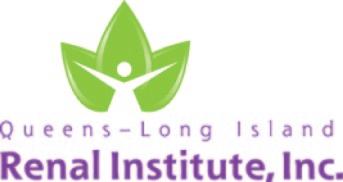
The award-winning Queens Long Island Renal Institute focuses on care, safety and convenience for kidney dialysis patients in the New York metropolitan area. Located in the lobby level of Parker Jewish Institute for Health Care and Rehabilitation with its own entrance, the center provides care to Parker’s residents and patients as well as to the general public.
Queens Long Island Renal Institute offers the finest quality of care, state-of-the-art technology and uncompromised dignity, in a bright, ultramodern and comfortable setting.
The center is a certified 5-Diamond Status Facility, and is recognized for its demonstrated commitment to quality improvement by building and promoting a culture of patient safety. To earn this status, dialysis facilities must apply for the recognition each year. They must complete the program’s Culture of Safety module each year. A facility’s entire staff - including dieticians, management, nurses, medical directors, social workers and technicians - must participate in the program in order to qualify.
Licensed by the New York State Department of Health, QLIRI is led by a dedicated, interdisciplinary team of experienced nephrologists and dialysis registered nurses, a
renal social worker, and a registered renal dietitian. The team is ready to meet the individual needs of dialysis patients and families, and provides individual and family health education, as well as nutritional counseling and social work services.
QLIRI is outfitted with an in-center chronic hemodialysis. It features comfortable, state-of-theart, private treatment stations with personal TVs. There is also a homelike reception area with a large-screen TV as well as free wireless access. It

accommodates stretchers, and offers valet parking.
“With Queens Long Island Renal Institute conveniently located in Parker’s first-floor lobby, we continue to safely and comfortably meet the needs of our patients and residents, as well as members of the New York community who also benefit from our services,” said Michael N. Rosenblut, President and Chief Executive Officer of Parker Jewish Institute for Health Care and Rehabilitation.
About Parker Jewish Institute for Health Care and Rehabilitation
Parker Jewish Institute for Health Care and Rehabilitation, which is headquartered in New Hyde Park, is a leading provider of Short Term Rehabilitation and Long Term Care. At the forefront of innovation in patient-centered health care and technology, the Institute is a leader in teaching and geriatric research. Parker Jewish Institute features its own medical department, and is nationally renowned as a skilled nursing facility, as well as a provider of community-based health care, encompassing Social Adult Day Care, Home Health Care, Medical House Calls, Palliative Care and Hospice.

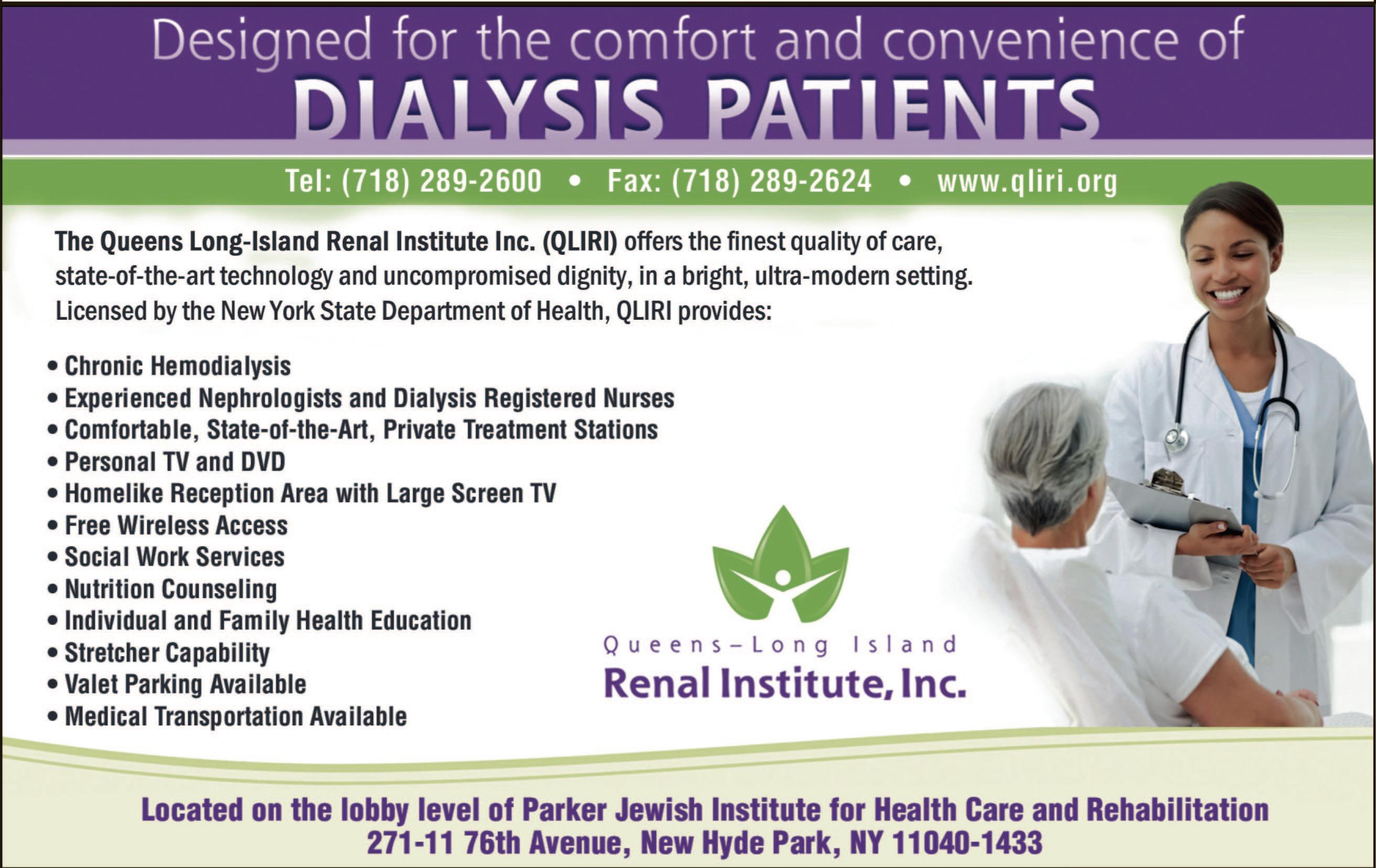

So you’re pushing ahead with your wellness goals. Obviously, all you need to do is jog a few miles each day, right?
Wrong! Healthy living is all about making smart choices for your body, diet, mind and overall well being.
Discover a new hobby
Outdoor activities are great ways to get regular exercise that’s enjoyable and rewarding. Get out there in all seasons, as much as possible. Go beyond running biking, tennis and golf. Other uplifting physical activities with hobby potential include, rock climbing, horseback riding, dance and martial arts, and, of course, skiing, snowboarding, and the newest craze, pickleball.
Be label smart
Generally speaking, if an item has a label on it with more than five ingredients, you probably shouldn’t be eating it, nutritionists advise. The healthiest choice foods contain one ingredient or no label at all. For instance, fruits, vegetables, leafy greens, nuts, seeds, beans and legumes are all single food options that your body can use much better than a processed protein bar with 10 or more ingredients.
Added sugars, fillers and preservatives, emulsifiers, and many animal-based ingredients can all make their way into foods that aren’t necessarily easy to spot. When you choose simple labels, you’re naturally choosing healthier foods.
Try something new at the farmers market
Don’t get stuck in a rut by eating the same boring veggies; locate the nearest farmers market for fresh, seasonal produce. Try a new vegetable each week to up your intake and keep you interested. Veggies like kale, bok choy and butternut squash are high in fiber and antioxidants.
Trust your mom, don’t neglect breakfast Morning preferences vary, but it’s impor-

tant for everyone to get an energy boost to face the day and breakfast is a great way to do this. You should wake up early enough to enjoy a meal, and if time is of the essence, rely on nutritious cereals or oatmeal.
For afternoon tea time: go red Red tea is the hot new health drink. Green tea and black tea are full of disease-preventive antioxidants, but they’re also caffeinated. Red
tea, or rooibos tea, has the same advantage of antioxidants without the consequences of caffeine. Plus, it’s recommended to help with anxiety, tension, allergies and digestive issues.
Unwind with a daily stretch
Whether it’s in between tasks at work or after your commute home, stretching your muscles increases blood circulation, improves posture and induces relaxation. Consult a yoga or pilates instructor for a new stretch each day to build up your repertoire and make it a daily habit. You’ll notice long-term benefits like increased range of motion and less back pain.
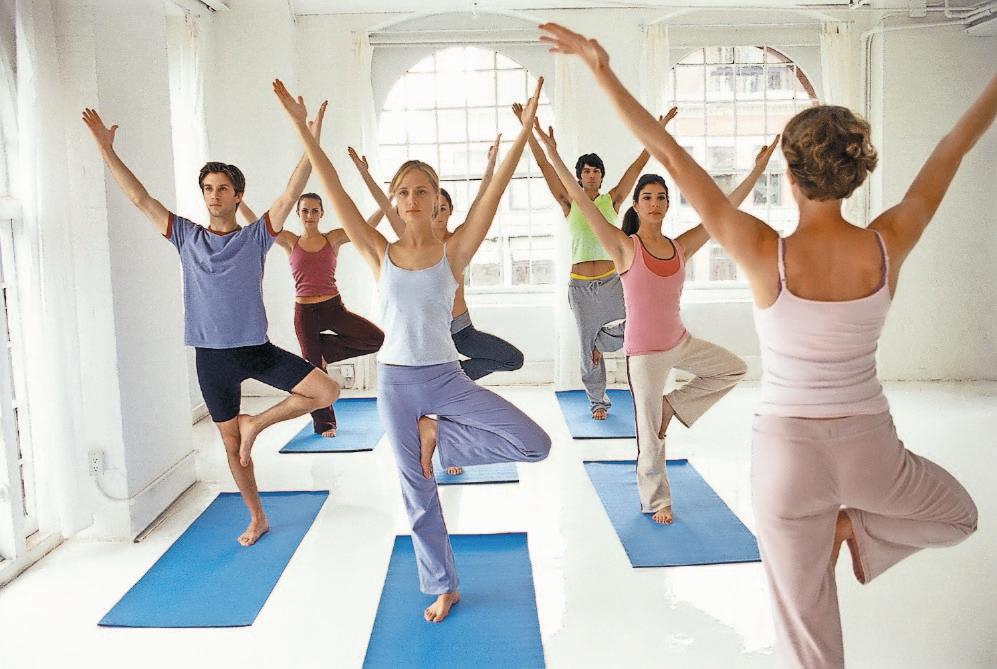
Find your inspiration
If you adopt a healthy practice that feels right and fits your lifestyle and don’t push yourself harder or faster than you’re reasonably able to go you’re going to stick with it. And staying true to your health goals is your key to reaching them.
This fall, before the pumpkins are purchased and turkeys are cooked, make sure you and your loved ones are fully vaccinated and protected from Covid-19, the flu and RSV (respiratory syncytial virus), a respiratory virus that usually causes mild, cold-like symptoms, but can be severe especially in older people and infants.
Recently, the U.S. Food and Drug Administration and the Centers for Disease Control and Prevention approved the updated Covid-19 vaccines from Pfizer/BioNTech and Moderna that target currently circulating variants and provide better protection against serious illness.
On Tuesday, Sept. 12, a panel of the Centers for Disease Control and Prevention (CDC) voted to recommend the updated vaccines for everyone six months and older. The CDC recommended that most people get one dose of the new vaccine, at least two months after their most recent vaccine dose. People who are immunocompromised, and parents of young children, should consult their doctor for recommended dosing.
“I recommend that individuals who are especially vulnerable and have not recently had Covid and/or received a bivalent booster get the new monovalent vaccine as soon as possible for enhanced protection from getting a severe case of Covid-19,” said Aaron E. Glatt, MD, Chair of the Department of Medicine and Chief of Infectious Diseases, at Mount Sinai South Nassau. This includes the elderly and immunocompromised.
The FDA also recently approved two RSV vaccines for those older than 60 and an RSV monoclonal antibody therapy called Nirsevimab for infants and toddlers. If you are older than 60, discuss with your health care provider if the RSV vaccine is right for you. All infants eight months or younger, born during—or entering—their first RSV season, and infants in their second season between eight and 19 months old and at elevated risk for severe RSV are eligible for Nirsevimab.
Abrysvo, the single-dose RSV vaccine produced by Pfizer, is approved for use in pregnant women between week 32 and week 36 of pregnancy. The vaccine produces antibodies in “mommy” that
are passed on to their unborn children, providing their newborns with protection from severe RSV from birth to six months of age, and possibly even longer.
All versions of the flu vaccine for the 2023-2024 season are designed to protect against four different flu viruses, including two influenza A and two influenza B viruses. The vaccine is available to all individuals six months and older. and it is best to get it before the end of October.
CDC guidance says that it is safe to get both the Covid-19 and flu vaccines together during the same visit to the doctor or pharmacy. Since there are no data on the safety of getting all three vaccines simultaneously, Dr. Glatt says if it is practical, try to schedule a separate visit to get the RSV vaccine, but it is acceptable to get more than one vaccine, even all three, at the same visit if necessary.
Because each vaccine is recommended by the CDC’s Advisory Committee on Immunization Practices, their cost is covered for people with private insurance, Medicare, or Medicaid
(although some private insurance plans may require a copay for the RSV vaccine). The cost of the RSV vaccine is covered for Medicare beneficiaries enrolled in Part D Medicare. Those who have not signed up for the Part D benefit may have to pay out of pocket. Those without insurance should be able to get the vaccines through state and local health departments and community health centers. Uninsured adults who are unable to access free vaccines must pay out of pocket for the full cost of the vaccines or receive them on a sliding fee scale at certain safety net providers.
In addition to vaccination, taking appropriate public health precautions will help prevent many viral (and bacterial) infections, including Covid-19, the flu, RSV, and even the common cold:
Wash your hands with warm water and soap for at least 20 seconds if they are dirty, after using the bathroom, and before eating or preparing food.
People at higher risk for getting serious illness should consider wearing a mask when indoors among people and maintain social distancing as possible.
Cover sneezes and coughs with a tissue or your elbow.
If you’re sick, stay home.
Eat healthy and get sufficient rest. Stay hydrated.
Regularly clean and disinfect hightouch surfaces, such as doorknobs, light switches, and counters.
Getting vaccinated is as simple as calling your doctor, visiting your local drugstore, or scheduling an appointment with Mount Sinai South Nassau’s Vaxmobile. In partnership with the Town of Hempstead, the Vaxmobile’s upcoming schedule includes visits to the following senior centers from 10 a.m. to 2 p.m.
Oct O ber
• 10/2 - Baldwin Senior Center, 810 North Grand Avenue, Baldwin
• 10/3 - Elmont Senior Center, 138 Elmont Road, Elmont
• 10/10 - Lido Senior Center, The Sands, Lido Beach Town Park, 630 Lido Boulevard, Suite 2
• 10/13 - Green Acres Senior Center, 400 Flower Road, Valley Stream
• 10/16 - Levittown Senior Center, 555 North Newbridge Road, Levittown
• 10/18 - Merrick Senior Center, 2550 Clubhouse Road, Merrick
• 10/30 - Uniondale-Hempstead Senior Center, 840 Uniondale Avenue, Uniondale
• 10/31 - Bellmore Senior Center, 2000 Bellmore Avenue, Bellmore
N O vember
• 11/1 - Uniondale-Merrick Senior Center, 750 Jerusalem Avenue, Uniondale
• 11/6-Franklin Square Senior Center, 1182 Martha Pl, Franklin Square
• 11/8 - Merrick Senior Center, 2550 Clubhouse Road, Merrick
To find out when the Vaxmobile will be in your community, call Mount Sinai South Nassau Community Education at (516) 377-5333 or send an email to vaxmobile@snch.org.
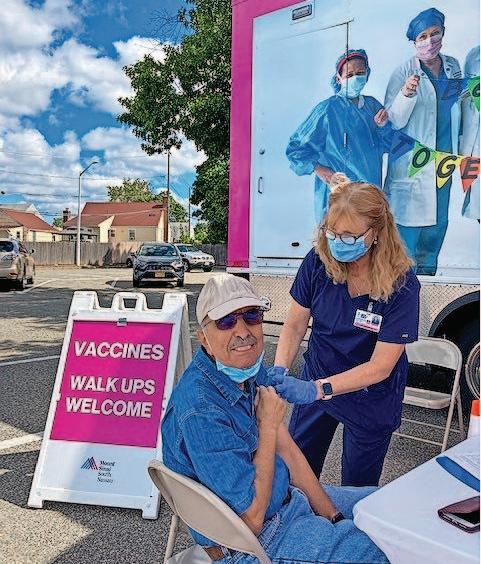
Exercising regularly will make your heart and blood circulatory system more efficient. It will also help to lower your cholesterol and keep your blood pressure at a healthy level, decreasing your risk of developing some kinds of dementia. Research from Dr. Kramer, at the University of Illinois, found that brain volume (as measured in an MRI) actually increases in people who regularly exercise. For most people, a minimum of 150 minutes (2 hours and 30 minutes) of moderateintensity aerobic activity each week, such as cycling or fast walking, is recommended.

Recommended exercises to help maintain a healthy senior lifestyle and possibly reduce the risk of developing dementia:


Exercises that build endurance:
Walking briskly with no incline. Walking is great to get the senior heart rate up, without straining joints. 15 to 30 minutes of brisk walking 3 to 4 times a week is a great way to help seniors maintain both physical and mental fitness.
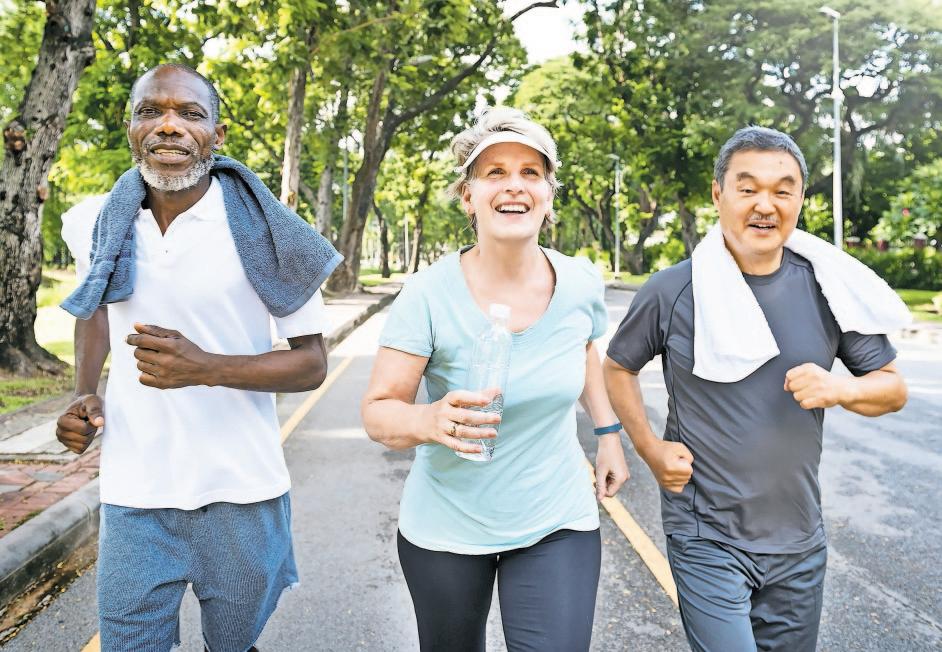
Swimming. Water is great for old joints as it is buoyant and provides a free-flow, low impact environment for senior workouts. Either lap swimming or water aerobics are great for seniors. Many health centers offer either open lap swim or senior water aerobics classes, so check with your local community pool.
Gardening. Gardening offers an enjoyable alternative to working out, although it’s more difficult to measure the exercise. If gardening is the desired workout, make sure it’s alternated with another endurance option.
Cycling on stationary

When it comes to good health, everyone knows the steps to take, whether it’s making time to get to the gym, researching the latest superfoods, and so forth.
While these avenues to health certainly can be beneficial, individuals also can turn to many health boosters in their own homes to help them achieve their goals of living healthier lifestyles.
bicycle. Cycling on a stationary bicycle can be a senior favorite as it can be done while watching tv. 15 to 30 minutes on the bicycle is ideal to get the heart rate up. There are additional resistance and Strength Exercises that can also be healthy for the body, and mind. Remember: always consult your physician before starting a new exercise regimen.
• Lemon water: Lemon water is now being touted as a beneficial addition to one’s daily diet. Lemon water can help reduce acidity in the body, including removing uric acid, a main cause of inflammation. Lemons contain pectin fiber, which can aid in weight loss by helping to fight hunger pangs. Lemons also contain a load of vitamin C, which can give the immune system a boost.
• Yogurt: Probiotic pills can help return healthy bacteria to the digestive system, but so can eating yogurt regularly. Look for yogurts that contain live and active cultures for optimal benefit.
• Bicycle: Dust off that bicycle that has been hiding in your garage, if you didn’t do so during the pandemic. Cycling is an excellent form of cardiovascular exercise, and riders can tailor their intensity levels to correlate to their ages












and abilities. Many folks kids and adults find cycling an enjoyable form of activity because it gets them outside and often doesn’t feel like exercise.
• Fruits and vegetables: Produce offers many of the vitamins and minerals people look to supplements to provide. Including diverse fruit and vegetable choices in one’s diet can improve health in various ways, including providing a boost to the immune system.
• Honey: Honey is a valuable superfood that can boost overall health. In addition to soothing sore throats, it can serve as an antibiotic and wound healer, provide allergy protection, increase calcium absorption, and provide a source of energy without the insulin spike associated with other forms of sugar. Just remember, not to give honey to infants under one year old.

• Oatmeal: Besides helping to lower cholesterol numbers, research suggests oats may also help you control your appetite. That bowl of oatmeal is a stick-to-your-ribs, wont-be-fulluntil-lunch way to start your mornings. You can also use it in so many other ways, such as overnight oats or even an oatmeal smoothie. How about that?


Mount Sinai South Nassau and the Town of Hempstead are bringing Flu vaccines to your community. Additional information about the mobile unit and its schedule are posted on the hospital’s Facebook page @MountSinaiSouthNassau

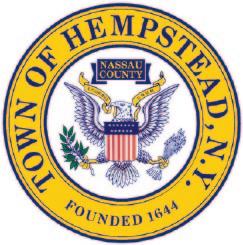
Baldwin Senior Center – Monday, October 2
10am-2pm, 810 N. Grand Ave, Baldwin, NY 11510
Elmont Senior Center – Tuesday, October 3 10am-2pm, 138 Elmont Rd, Elmont, NY 11003
Lido Senior Center – Tuesday, October 10
10am-2pm, The Sands at Lido Beach, Lido Beach Town Park, 630 Lido Blvd Ste 2, Lido Beach, NY 11561
Green Acres Senior Center – Friday, October 13 10am-2pm, 400 Flower Rd, Valley Stream, NY 11581
Levittown Senior Center – Monday, October 16
10am-2pm, 555 N Newbridge Rd, Levittown, NY 11756
Merrick Senior Center – Wednesday, October 18 10am-2pm, 2550 Clubhouse Rd, Merrick, NY 11566
Uniondale-Hempstead Senior Center – Monday, October 30
10am-2pm, 840 Uniondale Ave, Uniondale, NY 11553
Bellmore Senior Center – Tuesday, October 31
10am-2pm, 2000 Bellmore Ave # A, Bellmore, NY 11710
Uniondale-Merrick Senior Center – Wednesday, November 1
10am-2pm, 750 Jerusalem Ave, Uniondale, NY 11553
Franklin Square Senior Center – Monday, November 6 10am-2pm, 1182 Martha Pl, Franklin Square, NY 11010
Merrick Senior Center – Wednesday, November 8
10am-2pm, 2550 Clubhouse Rd, Merrick, NY 11566
For more information, call Mount Sinai South Nassau’s Department of Community Education at 516-37 7-5333.